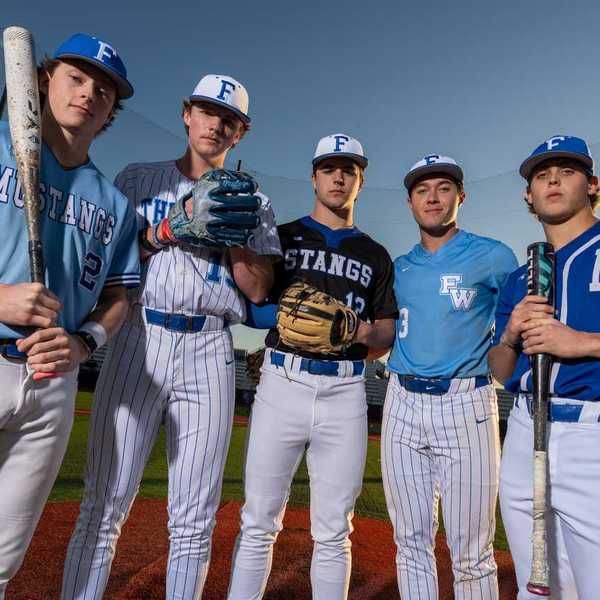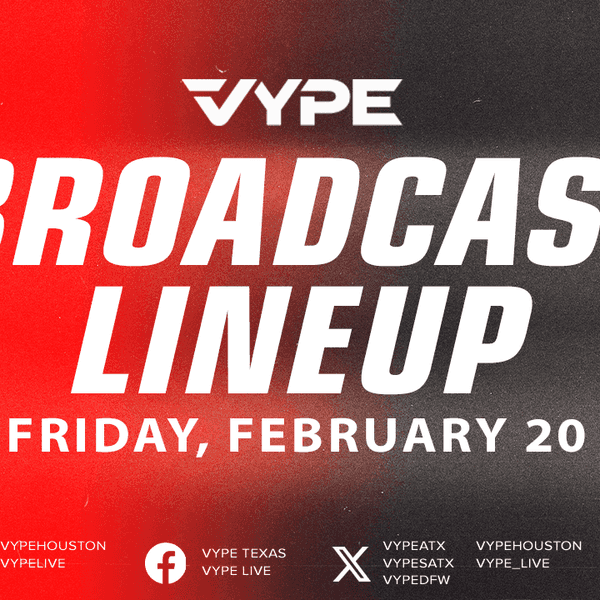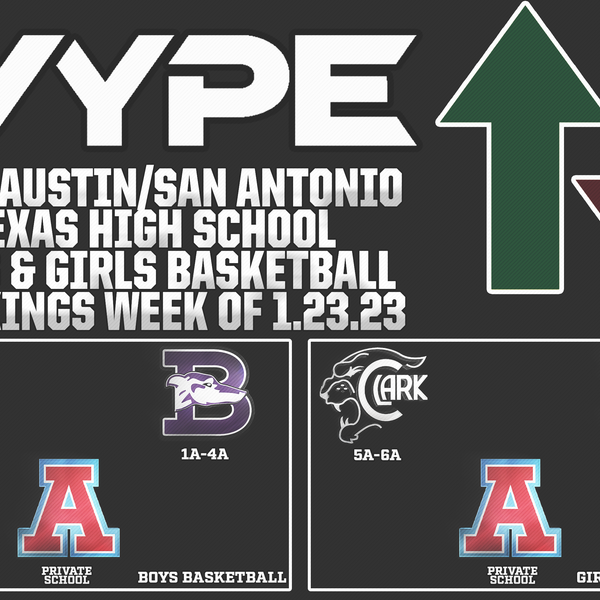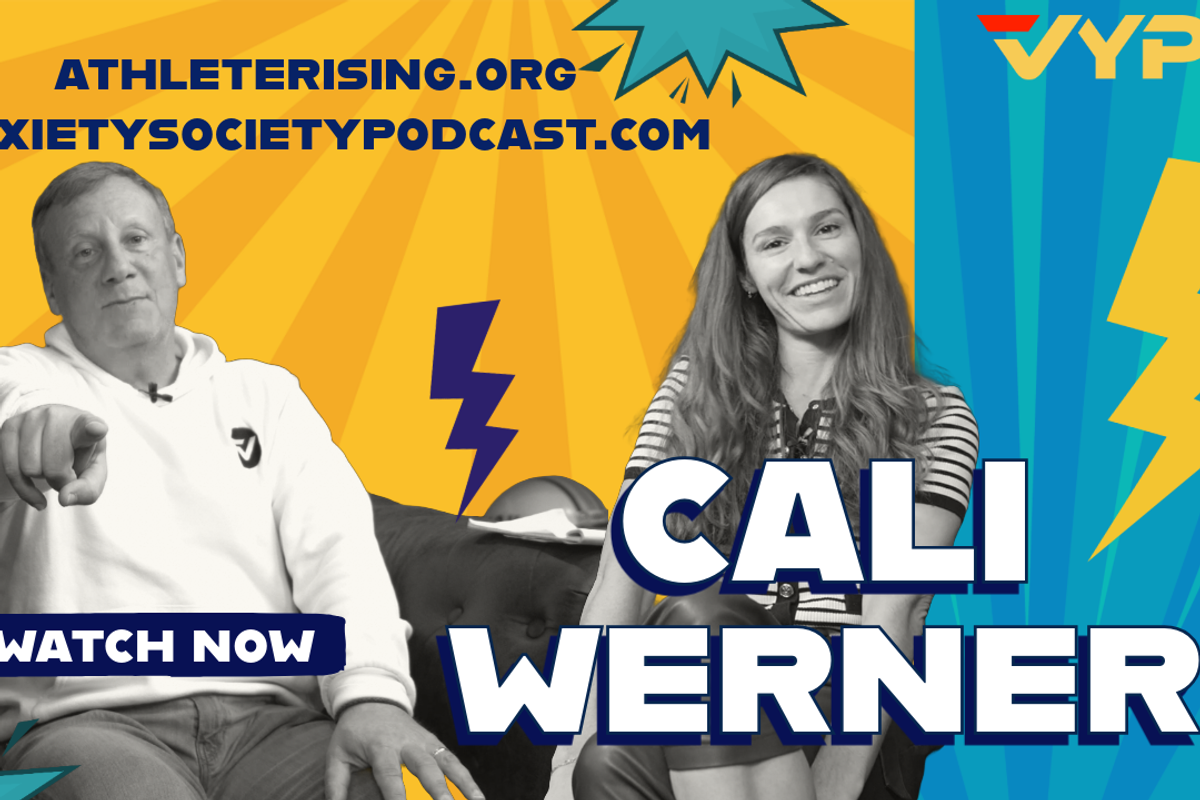GAMES
RANKINGS
A Call For Change: The Need for Mental Health Reform in College Athletics
I’ve never experienced the feeling of uneasiness to the extent that I have these past few days.
On March 1st of this year, Katie Meyer, a goalie for the Stanford women’s soccer team, decided to take her own life. My Twitter feed was overwhelmed with the same black-and-white picture of Meyer smiling from ear-to-ear, many of which followed with words like “check in on your friends” or “prioritize mental health first”.
Meyer’s passing was hard to swallow. But, I had no idea I would have to see multiple public tragedies like that one occur again this year, let alone in a month’s time.
April 13th marked the passing of the University of Wisconsin’s Sarah Schulze after the star runner decided to end her life as well. Not even two weeks later, James Madison University announced the passing of one of their softball players, Lauren Bernett, due to suicide.
I don’t really know if I’ve processed these deaths fully yet. Deaths of people who performed at such a high level. Deaths of role models for future athletes.
However, the hardest thing for me to digest is that the ultimate goal for a good number of young athletes, playing collegiate sports, is something that has put an emotional burden on so many and have left some unable to lift it.
Outpours of essay-like rants have flooded the internet recently, calling out for an emphasis to be put on valuing “the person in the cleats”. They touch on how athletes should seek help, take time for themselves, and how everyone should reach out to one another making sure they’re okay despite the absence of “warning signs”.
While these things are true in the sense of needing more careful attention to athletes’ well-being, there have been red flags.
And they’ve been around for quite some time now.
Their origins have come from this toxic culture that has been created around performance. The shrinking of an athlete’s margin for error is uncanny. The direct correlation of treating an athlete a certain way based on how they performed rather than how they are as a person is present now more than ever.
This isolating environment has impacted how the sport is approached, as it’s not just a game anymore; it’s a minefield. Trying to avoid coming up short of perfection instead of trying to enjoy competing has become the new normal.
But, why do athletes feel they need to be perfect? They should know no one is.
Well, that’s not what they’ve always been told.
Today, collegiate student-athletes constantly live in the limelight, their every move being watched and picked apart. While this is great in terms of recognition and representation, it also comes with huge responsibility, a responsibility that these athletes don’t shoulder lightly. With it comes guilt from taking a day off because “someone else is out there getting better today”. With it comes the fear of letting down those they are supposed to be a shining example for.
But, that’s part of the dream, right?
Sure, no one ever said chasing after the dream of competing as a collegiate athlete was going to be easy. But, there’s this huge disconnect differentiating the athlete from the person. Moreover, that disconnect has contorted the way athletes are perceived by others and how they see themselves.
Being a student-athlete now in such a nit-picky environment, there’s this “Why?” factor associated with coming up short in performance. Why didn’t you run faster? Why did you miss that shot? Why did you strike out?
Why? Why? Why?
It’s such a simple question that is misused so carelessly. What could be used as a tool for self-reflection is abused by so many to make an athlete feel guilty for making a mistake, something all humans do.
How the “Why?”s are used today have caused athletes to put aside their own personal needs for their felt obligation to avoid failure. “Don’t ever let them see you cry” or “Suck it up” have been universal mantras in the sports world. While coaches and parents trying to teach this to their athletes intended to emphasize strength, all it did was create fear. Fear that asking for help is weak. Fear that experiencing anxiety or emotions were weak.
It’s always been a numbers game- those with the fastest time or the most goals scored were rewarded. But when numbers are the only thing that are recognized as success, whether that be by a coach, a parent, or a troll on Twitter, it’s hard for athletes to not chase after the myth that is perfection. Identity quickly becomes nothing but a decimal point. “One more hour at the cages will turn into one hundred more points towards my batting average”. The “one more”s turn into “two more”s and then “three more”s.
It all adds up. It adds up to time for rest, time for growth, time for themself. With no time to grow as a person, it is quite literally impossible to grow as an athlete.
All spent chasing after a number.
It’s all about the numbers before you get to the collegiate level, too. We rank sixth graders in club sports now, expecting them to perform like pros. Middle schoolers are creating recruiting profiles. Younger and younger, six hour practices are normal and coaches are more ruthless. All of this is in an attempt to prepare their kids for the next level-college.
How are athletes supposed to know who they are if they’re never given the time to figure it out?
Since numbers are all that seem to carry weight, here’s some more: campuses with as many as 15,000 students on campus only have on average just six counselors. Three collegiate athletes have been added to the death toll in just a month.
How many lives does it take for change?
My heart hurts. It hurts for those who feel that the sport they once loved couldn’t save them. It hurts for those aspiring to be involved in collegiate sports who feel they constantly have to compare themselves to unrealistic expectations to get there. It hurts for those who have lost family or friends in the process.
I’m tired of hurting, and I think everyone else is too.
Mental health is not something that’s easy to talk about. But, it should be something that’s easy to prioritize. Providing increased and easier access to mental health resources to collegiate athletes is not a request; it’s a necessity. But, it starts with us- the people that watch these athletes, the coaches, the parents, the teammates. Serving as confidants instead of critics is a role we need to take on to turn the minefield that is collegiate athletics back into a healthy place of competition. Letting them know that needing help is okay. Seeing an athlete as a person first, a person with needs and feelings that will mess up once in a while.
Let Katie Meyer, Sarah Schulze and Lauren Bernett be the last to fall victim to a numbers game.
ROBERT ANDREWS SAYS: Cancelled Seasons and the Mental and Emotional Well Being of Your Athlete
The Coronavirus outbreak has sent a shock wave of anxiety and concern throughout the world of sports. Here in the United States the MLB, NBA, MLS and even the new XFL have postponed or canceled their seasons. The NCAA even cancelled March Madness. Entire seasons in gymnastics, baseball, tennis and numerous other sports have been put on hold or cancelled.
Athletes in junior high, high school and college are not going to school as we wait and see how bad this crisis gets and how long it last.
With the sudden halt of these seasons, and the lack of the structured environment that school provides, hundreds of thousands of athletes throughout the country must face a serious transition. This transition forces the athlete to face a number of key stressors and losses that could have an impact on one's mental and emotional health and well-being.
Athletes must face and adjust to these losses:
The loss of a highly structured school and team environment.
The loss of routines and daily rituals.
The loss of identity associated with being a student/athlete.
The loss of the dreams that go with a promising season or key event.
The loss of an active lifestyle that stimulates one's mind and body.
The loss of a highly competitive mindset in the classroom and in sport.
The loss of camaraderie and connection to a team.
The loss or ending of a career.
The loss of activities associated with campus life.
The loss of family centered events (games, tournaments, travel)
...
Athletes don't train for a critical event like this and the losses that come with it. The further along one is in their career the more difficult it might be to face this shut down.
Olympic hopefuls are facing the uncertainty of the Olympic games being cancelled. Years of training, conditioning, discipline, competing, mental training and overcoming injuries are now in jeopardy as the crisis at hand spreads. Altering training schedules and gearing down mentally and emotionally, if the Olympics are delayed. It will take an enormous amount of mental and emotional energy.
Professional athletes are suddenly kept away from the game they love, connection to their coaches and teammates and a highly structured lifestyle.
College basketball, tennis, gymnastics and other sports have had their seasons end and dreams and goals shattered due to the NCAA tournaments and other events being cancelled.
The careers of some college seniors have harshly and unexpectedly come to an end.
At the club level in sports like gymnastics and volleyball, State, Regional and National competitions are on hold if not cancelled.
Along with the sudden end to a season can come a just as sudden halt to a highly structured and intense training routine. For many, workouts and training sessions have stopped. There is research that tells us that when an athlete who is used to a very active training regiment suddenly stops training and being active, hormones and other important chemicals in the brain and body change. These changes can have a serious impact on the brain, mental and emotional states, personality, mood and behavior.
...
Things to look for:
Emotional changes: Increased anxiety, frustration, sadness, grief, outburst of anger, despair, depression and hopelessness.
Personality and behavioral changes: Isolation, withdrawal, sullen or depressed. Outgoing personalities might become withdrawn and spend more time alone or in their bedrooms. Some might become quiet. Others might experience angry outburst and bouts of extreme frustration. Others might become hyper controlling in an attempt to gain control over a situation they have absolutely no control. You might see experimentation or increased use of drugs and alcohol.
This crisis could be one of the most significant transitions an athlete might face, depending on their age, level of competition, maturity and emotional intelligence.
Increasing our awareness about symptoms that they might exhibit as they work their way through the losses associated with the end of their respective seasons, will help us to provide the care they need.
If you are concerned about self-quarantine and social distancing, most providers are equipped to provide technologically assisted calls or sessions on the internet. These sessions can be very effective. Just make sure that your athlete is in a quiet private area, is using a tablet or computer for a larger image on the screen, has earphones on for privacy and has a pen and paper to take notes.
We will get through this and sports will return. In the meantime, let's give our athletes the care they need as they work their way through the mental and emotional gauntlet they face.
"Robert Andrews and his highly skilled team of mental training experts assist athletes in achieving peak athletic performance and overcoming the mental and emotional impact of serious sports related injuries. They work with teams, coaches, parents and sports organizations, and stand ready to assist athletes and their families as they face this difficult crisis that comes with the shut down of sports."www.tinssp.com

































